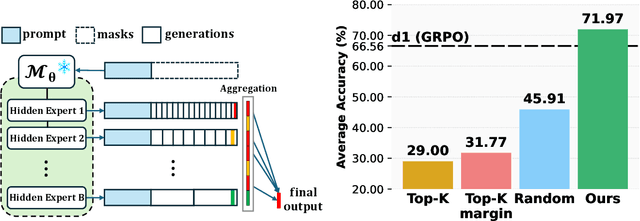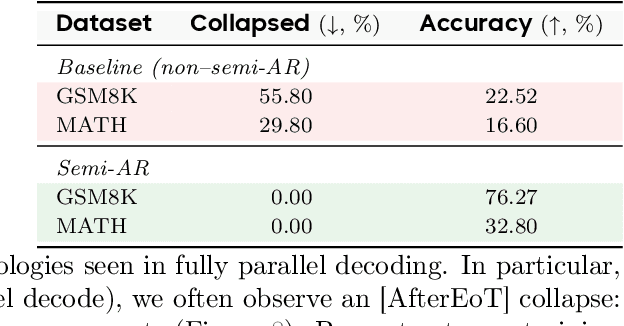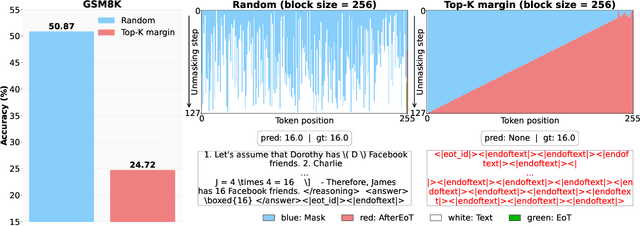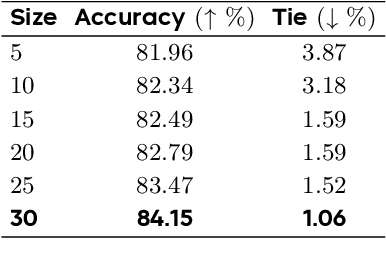Hoyeon Moon
Quality-Aware Translation Tagging in Multilingual RAG system
Oct 27, 2025Abstract:Multilingual Retrieval-Augmented Generation (mRAG) often retrieves English documents and translates them into the query language for low-resource settings. However, poor translation quality degrades response generation performance. Existing approaches either assume sufficient translation quality or utilize the rewriting method, which introduces factual distortion and hallucinations. To mitigate these problems, we propose Quality-Aware Translation Tagging in mRAG (QTT-RAG), which explicitly evaluates translation quality along three dimensions-semantic equivalence, grammatical accuracy, and naturalness&fluency-and attach these scores as metadata without altering the original content. We evaluate QTT-RAG against CrossRAG and DKM-RAG as baselines in two open-domain QA benchmarks (XORQA, MKQA) using six instruction-tuned LLMs ranging from 2.4B to 14B parameters, covering two low-resource languages (Korean and Finnish) and one high-resource language (Chinese). QTT-RAG outperforms the baselines by preserving factual integrity while enabling generator models to make informed decisions based on translation reliability. This approach allows for effective usage of cross-lingual documents in low-resource settings with limited native language documents, offering a practical and robust solution across multilingual domains.
Test-Time Scaling in Diffusion LLMs via Hidden Semi-Autoregressive Experts
Oct 06, 2025



Abstract:Diffusion-based large language models (dLLMs) are trained flexibly to model extreme dependence in the data distribution; however, how to best utilize this information at inference time remains an open problem. In this work, we uncover an interesting property of these models: dLLMs trained on textual data implicitly learn a mixture of semi-autoregressive experts, where different generation orders reveal different specialized behaviors. We show that committing to any single, fixed inference time schedule, a common practice, collapses performance by failing to leverage this latent ensemble. To address this, we introduce HEX (Hidden semiautoregressive EXperts for test-time scaling), a training-free inference method that ensembles across heterogeneous block schedules. By doing a majority vote over diverse block-sized generation paths, HEX robustly avoids failure modes associated with any single fixed schedule. On reasoning benchmarks such as GSM8K, it boosts accuracy by up to 3.56X (from 24.72% to 88.10%), outperforming top-K margin inference and specialized fine-tuned methods like GRPO, without additional training. HEX even yields significant gains on MATH benchmark from 16.40% to 40.00%, scientific reasoning on ARC-C from 54.18% to 87.80%, and TruthfulQA from 28.36% to 57.46%. Our results establish a new paradigm for test-time scaling in diffusion-based LLMs (dLLMs), revealing that the sequence in which masking is performed plays a critical role in determining performance during inference.
Illustrious: an Open Advanced Illustration Model
Sep 30, 2024



Abstract:In this work, we share the insights for achieving state-of-the-art quality in our text-to-image anime image generative model, called Illustrious. To achieve high resolution, dynamic color range images, and high restoration ability, we focus on three critical approaches for model improvement. First, we delve into the significance of the batch size and dropout control, which enables faster learning of controllable token based concept activations. Second, we increase the training resolution of images, affecting the accurate depiction of character anatomy in much higher resolution, extending its generation capability over 20MP with proper methods. Finally, we propose the refined multi-level captions, covering all tags and various natural language captions as a critical factor for model development. Through extensive analysis and experiments, Illustrious demonstrates state-of-the-art performance in terms of animation style, outperforming widely-used models in illustration domains, propelling easier customization and personalization with nature of open source. We plan to publicly release updated Illustrious model series sequentially as well as sustainable plans for improvements.
Scalp Diagnostic System With Label-Free Segmentation and Training-Free Image Translation
Jun 26, 2024Abstract:Scalp diseases and alopecia affect millions of people around the world, underscoring the urgent need for early diagnosis and management of the disease. However, the development of a comprehensive AI-based diagnosis system encompassing these conditions remains an underexplored domain due to the challenges associated with data imbalance and the costly nature of labeling. To address these issues, we propose ScalpVision, an AI-driven system for the holistic diagnosis of scalp diseases and alopecia. In ScalpVision, effective hair segmentation is achieved using pseudo image-label pairs and an innovative prompting method in the absence of traditional hair masking labels. This approach is crucial for extracting key features such as hair thickness and count, which are then used to assess alopecia severity. Additionally, ScalpVision introduces DiffuseIT-M, a generative model adept at dataset augmentation while maintaining hair information, facilitating improved predictions of scalp disease severity. Our experimental results affirm ScalpVision's efficiency in diagnosing a variety of scalp conditions and alopecia, showcasing its potential as a valuable tool in dermatological care.
 Add to Chrome
Add to Chrome Add to Firefox
Add to Firefox Add to Edge
Add to Edge